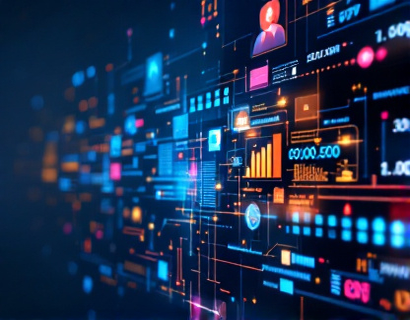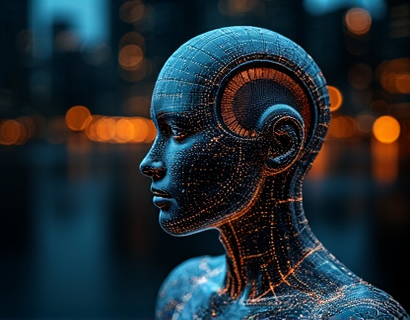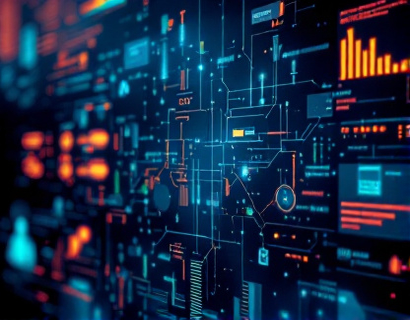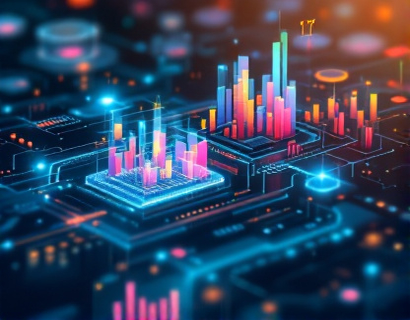Elevating Productivity in the Digital Age: Harnessing the Synergy of Crypto and AI
In the rapidly evolving digital landscape, professionals are constantly seeking ways to boost productivity and stay ahead of the curve. The convergence of cryptocurrency and artificial intelligence (AI) presents a transformative opportunity for tech-savvy individuals and early adopters. This article delves into how the integration of these two cutting-edge technologies can streamline tasks, enhance efficiency, and open new avenues for modern professionals.
The Intersection of Cryptocurrency and AI
The fusion of cryptocurrency and AI is a relatively new but rapidly growing field. Cryptocurrency, with its decentralized and secure nature, provides a robust foundation for AI applications that require high levels of data integrity and transaction security. AI, on the other hand, brings intelligent automation and advanced data analysis capabilities to the table. Together, they create a powerful synergy that can revolutionize various aspects of professional work.
Enhanced Security and Trust
One of the primary benefits of using cryptocurrency in AI applications is the enhanced security and trust it provides. Blockchain technology, the backbone of cryptocurrency, ensures that data transactions are immutable and transparent. This is particularly crucial for AI systems that handle sensitive information, such as financial data or personal user information. By leveraging blockchain, AI applications can operate with a higher degree of trust and security, reducing the risk of data breaches and fraud.
Automated Smart Contracts
Smart contracts, self-executing contracts with the terms directly written into code, are a prime example of how AI and cryptocurrency can work together to increase productivity. These contracts automatically enforce and execute agreements when predefined conditions are met. For professionals, this means reduced administrative overhead and faster execution of business processes. AI can optimize smart contracts by analyzing patterns and predicting outcomes, further enhancing their efficiency and reliability.
AI-Driven Cryptocurrency Trading
The trading of cryptocurrencies is another area where AI can significantly boost productivity. Traditional trading methods often involve extensive manual analysis and decision-making, which can be time-consuming and prone to human error. AI algorithms can process vast amounts of data in real-time, identifying trends and making informed trading decisions. This not only speeds up the trading process but also improves accuracy and consistency, allowing professionals to focus on higher-level strategic tasks.
Personalized Productivity Tools
AI-powered tools can be tailored to individual user preferences and workflows, making them highly effective for boosting productivity. For instance, AI-driven virtual assistants can manage schedules, prioritize tasks, and even predict future workload based on historical data. When integrated with cryptocurrency wallets, these assistants can automate financial management tasks such as budgeting, expense tracking, and investment monitoring. This holistic approach ensures that professionals have all the tools they need at their fingertips, streamlining their daily operations.
Decentralized Cloud Storage
Cloud storage solutions powered by blockchain and AI offer a secure and efficient way to manage digital assets. Decentralized storage platforms use blockchain to distribute data across multiple nodes, ensuring that files are not stored in a single vulnerable location. AI can optimize storage by analyzing usage patterns and compressing data to save space. This combination provides professionals with a reliable and secure way to store and access their files, regardless of their location or device.
Supply Chain Transparency
In industries where supply chain management is critical, the combination of cryptocurrency and AI can provide unprecedented transparency and efficiency. Blockchain ensures that every step of the supply chain is recorded and verifiable, while AI can analyze this data to identify bottlenecks and optimize logistics. For professionals in supply chain management, this means reduced costs, faster delivery times, and improved customer satisfaction. AI-driven predictive analytics can also forecast demand and adjust inventory levels accordingly, further enhancing productivity.
Tokenized Rewards and Incentives
Tokenization, a process where real-world assets are represented by digital tokens on a blockchain, can be used to create innovative reward and incentive systems. AI can analyze user behavior and preferences to design personalized reward programs that motivate and engage professionals. For example, a company could issue tokens that employees earn based on performance metrics, which can be redeemed for various benefits or used within the company ecosystem. This not only boosts motivation but also fosters a culture of excellence and innovation.
Enhanced Data Analytics
AI-driven data analytics is a game-changer for professionals who need to make data-informed decisions. By integrating blockchain, these analytics tools can ensure the integrity and authenticity of the data used. AI algorithms can process and analyze large datasets to uncover insights, trends, and patterns that would be impossible to detect manually. This enables professionals to make more accurate predictions, optimize operations, and drive growth. The transparency of blockchain ensures that all data sources are trustworthy, further enhancing the reliability of the analytics.
Decentralized Finance (DeFi)
Decentralized Finance (DeFi) platforms leverage blockchain and AI to provide financial services without traditional intermediaries. For professionals, DeFi offers new opportunities for lending, borrowing, and investing with greater control and lower fees. AI can enhance DeFi by providing sophisticated risk assessment tools, automated portfolio management, and real-time market analysis. This combination empowers professionals to make informed financial decisions and manage their assets more effectively.
Challenges and Considerations
While the potential benefits are significant, there are also challenges to consider when integrating cryptocurrency and AI into professional workflows. Regulatory uncertainty remains a key issue, as the legal framework for blockchain and cryptocurrency is still evolving in many regions. Professionals must stay informed about local regulations and ensure compliance. Additionally, the technical complexity of these technologies can be a barrier for some users. Education and user-friendly interfaces are essential to make these tools accessible to a broader audience.
Future Prospects
The future of cryptocurrency and AI in professional settings looks promising. As technology continues to advance, we can expect more seamless integration and innovative applications. The development of more efficient consensus mechanisms, improved AI algorithms, and enhanced user experiences will further drive adoption. Professionals who embrace these technologies early on will be well-positioned to leverage their full potential and stay ahead in a competitive landscape.
In conclusion, the combination of cryptocurrency and AI offers a powerful toolkit for modern professionals seeking to enhance productivity and efficiency. By harnessing the strengths of both technologies, professionals can streamline tasks, secure data, and make data-driven decisions with greater ease and confidence. As the digital landscape continues to evolve, staying informed and adaptable will be key to success.










































